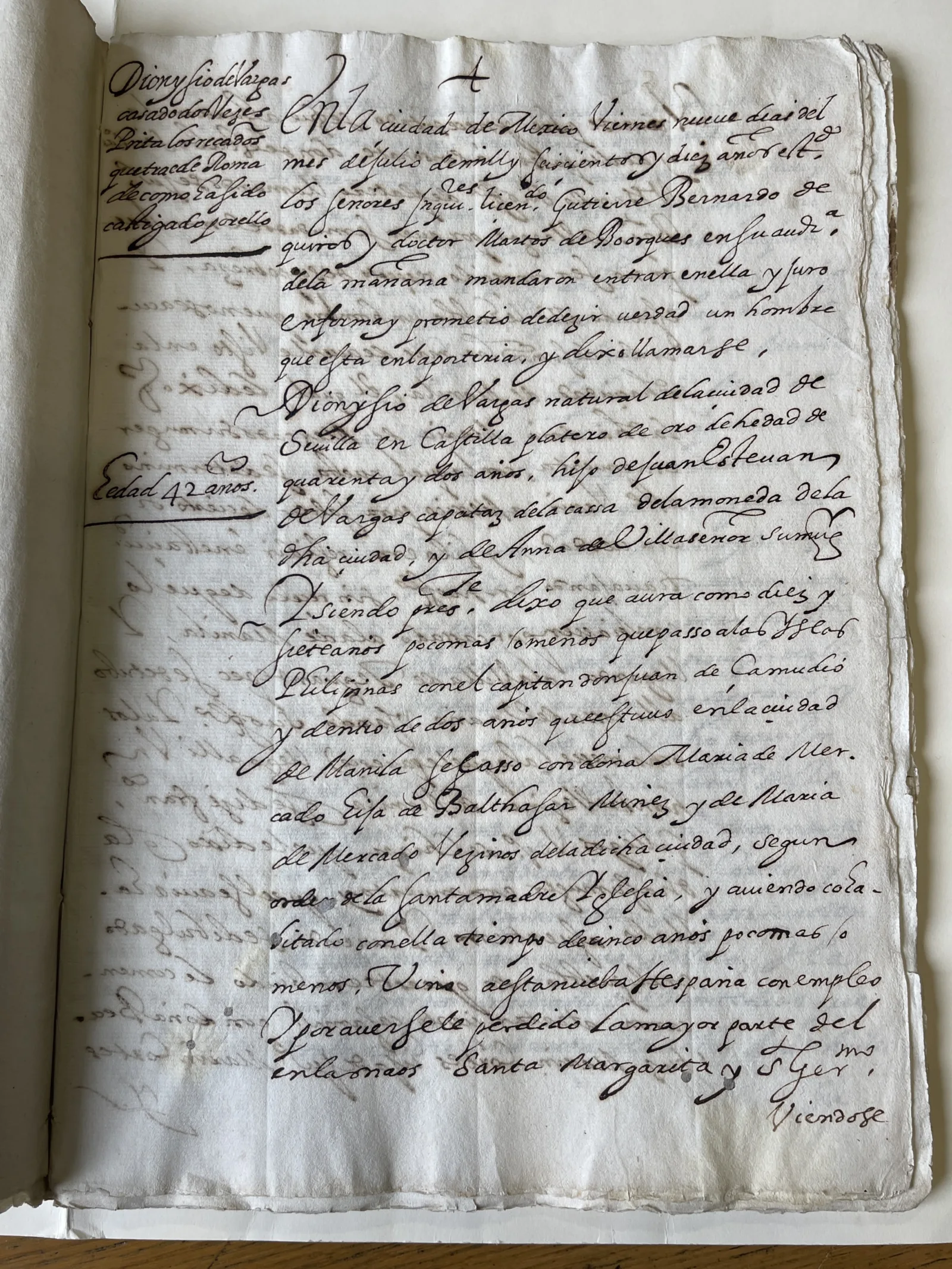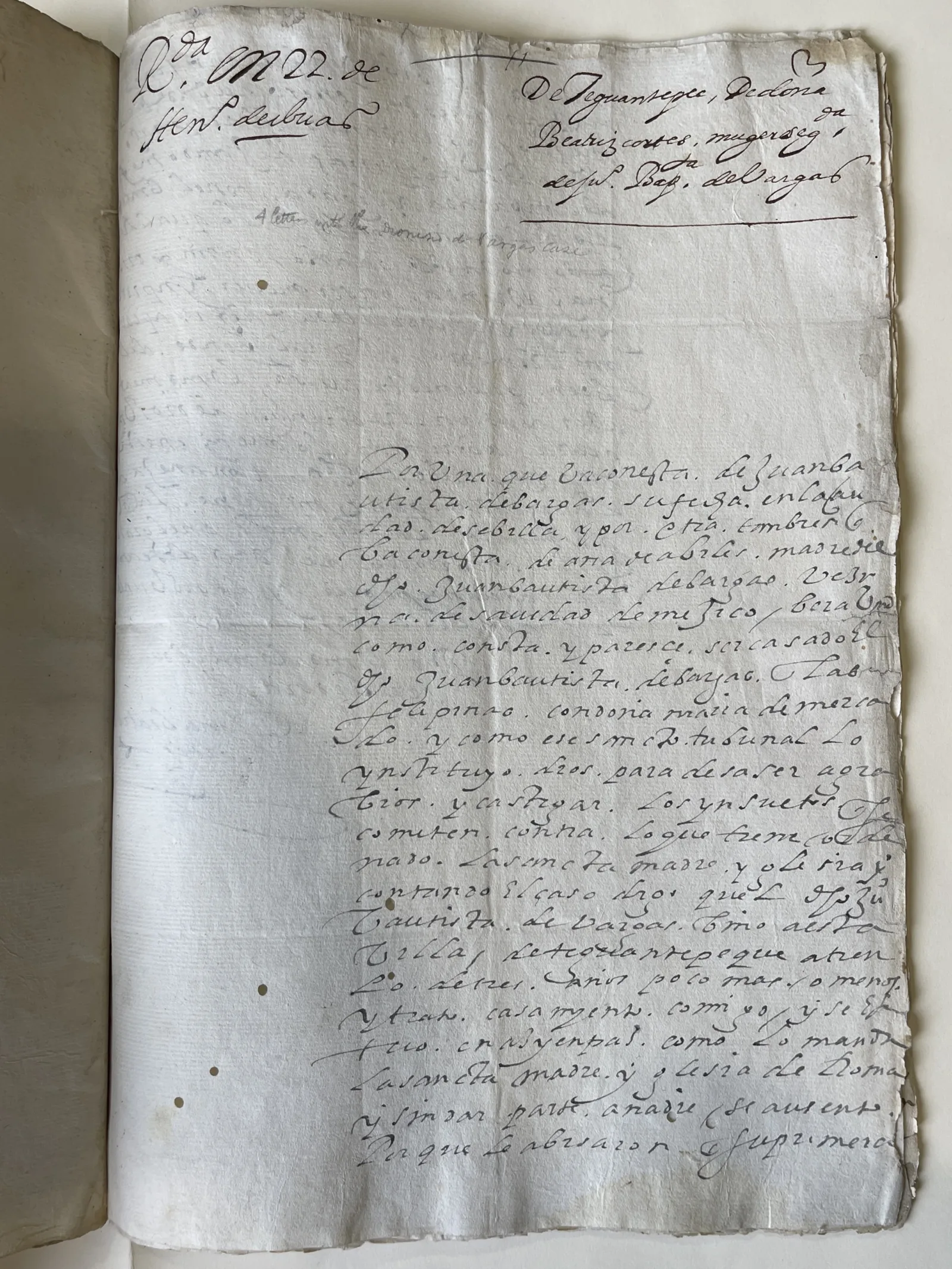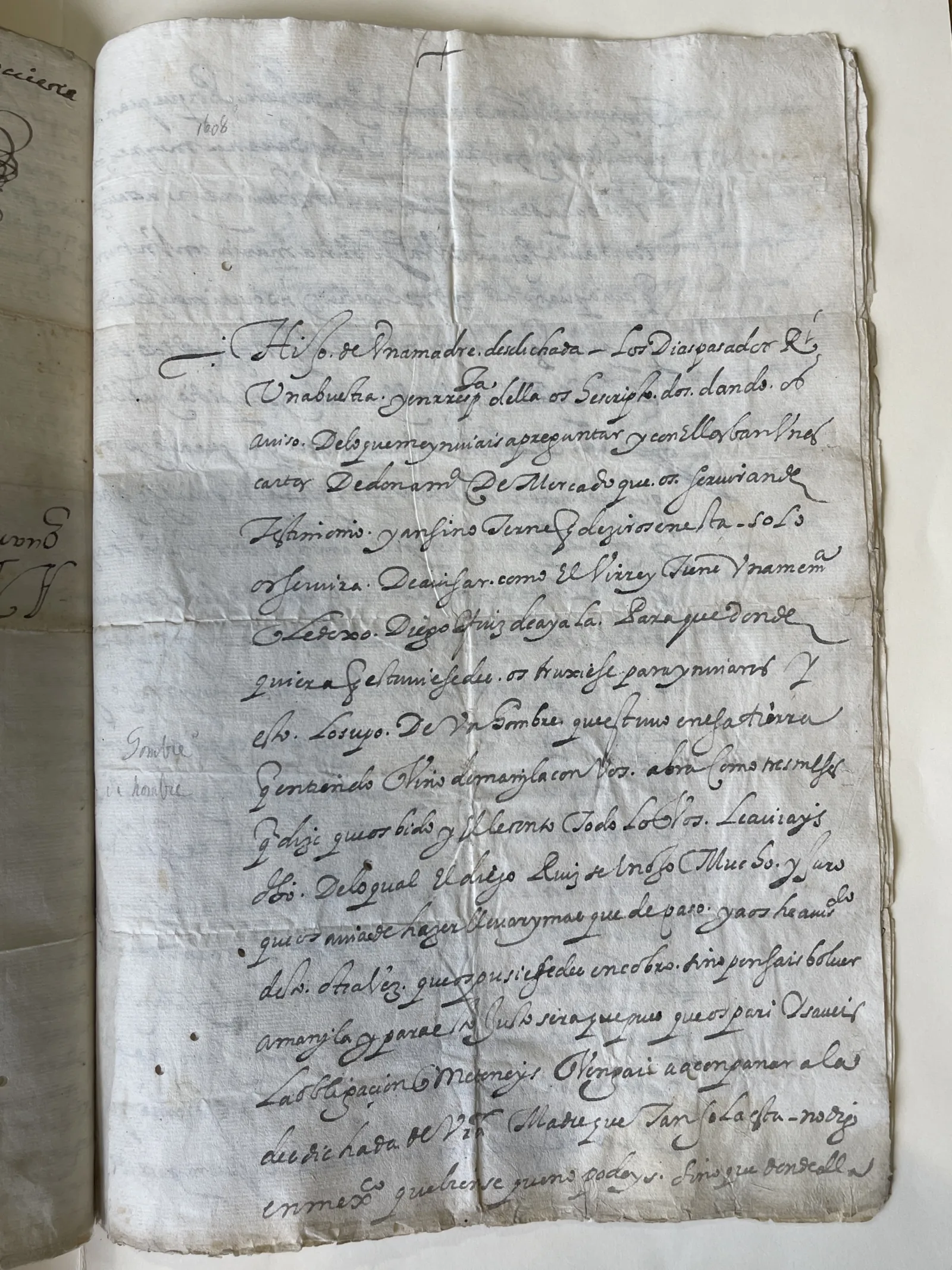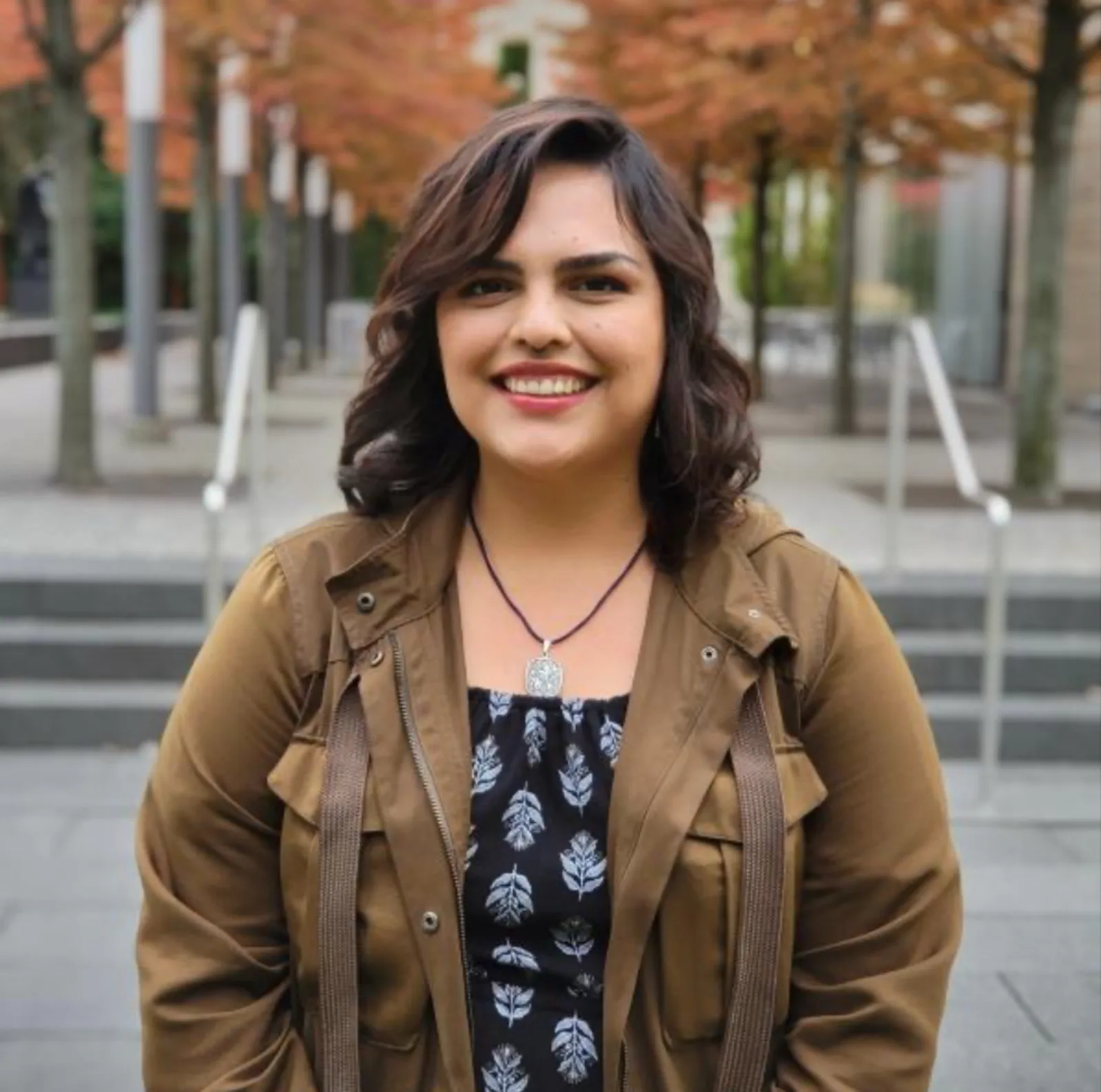From January 2025 through July 2025, I had the pleasure to intern at the Newberry Library and to work closely with the Center for Renaissance Studies staff on a variety of projects and events. Through my internship, I also had the opportunity to participate in programs that enriched my own research and sparked new endeavors. As an early modernist working on seventeenth-century Spain, I had a strong desire to expand my reach into the Americas and the Pacific. As part of a workshop titled “Visualizing the Archive: Senses and Silences,” I was tasked to go into the Newberry archives and find a manuscript that I could share with the attendees. This is when I came across Ayer MS 1248, a series of documents from 1608 related to bigamy charges against a man named Dionisio de Vargas.

From what I have been able to gather, Dionisio de Vargas had been living in Manila with his wife, María de Mercado, before traveling to New Spain, the colonial viceroyalty that included present-day Mexico and Central America, on his own. While living in what is now Guatemala, he received news by word of mouth that María (who was still in the Philippines) had passed away. He remarried and shortly after learned by way of a letter from Manila that María was still alive. Included in the documents are testimonies from witnesses (including Dionisio himself), sentencing documents from Rome, and correspondence between Dionisio and Beatriz (his second wife) and Dionisio and his mother. What seems to be missing is the letter from Manila. Additionally, what is of most interest to me is that María’s voice is completely absent from the archive and her existence is merely alluded to.


There is much more to unearth from these documents. I participated in the July 2025 Spanish Paleography Institute at the Newberry led by J. Michael Francis from the University of South Florida. This training in paleography has equipped me with the skills I need to transcribe the documents and to hopefully construct a fuller story. Moreover, this case offers me many lines of inquiry and research possibilities, namely how information is exchanged across continents in the early modern world, how hearsay stands in for official documentation, who exchanges information and who is silenced, and how we interpret a case in which a key piece of evidence (the letter from Manila) is missing, among other questions. Reading through this case has incited an intellectual curiosity and desire to explore the mechanisms of early modern information exchange across imperial geographies.
About the Author
Lizette Arellano is a Teaching Fellow in the Humanities at the University of Chicago.
Learn more about the upcoming symposium, Philippine Lives under Early Spanish Rule, taking place October 23-24 at the Newberry.
